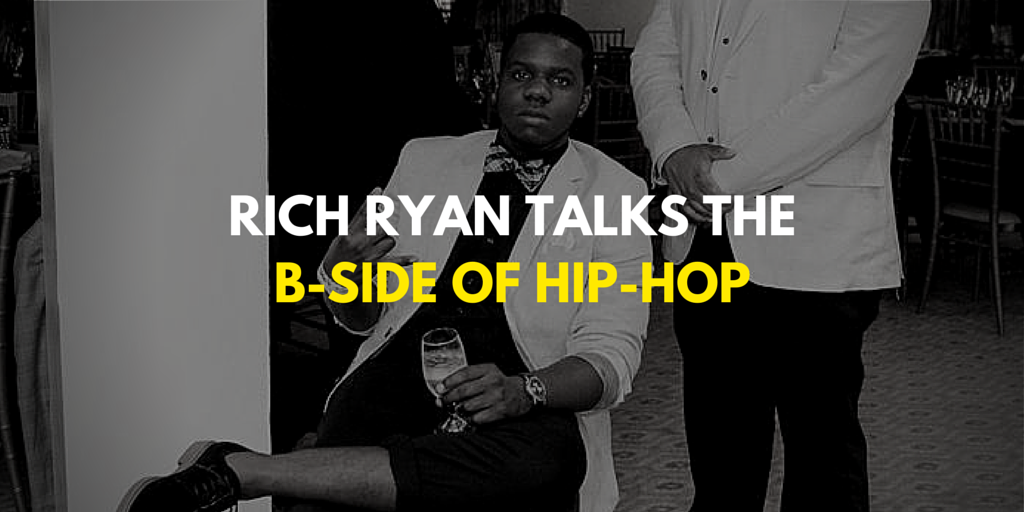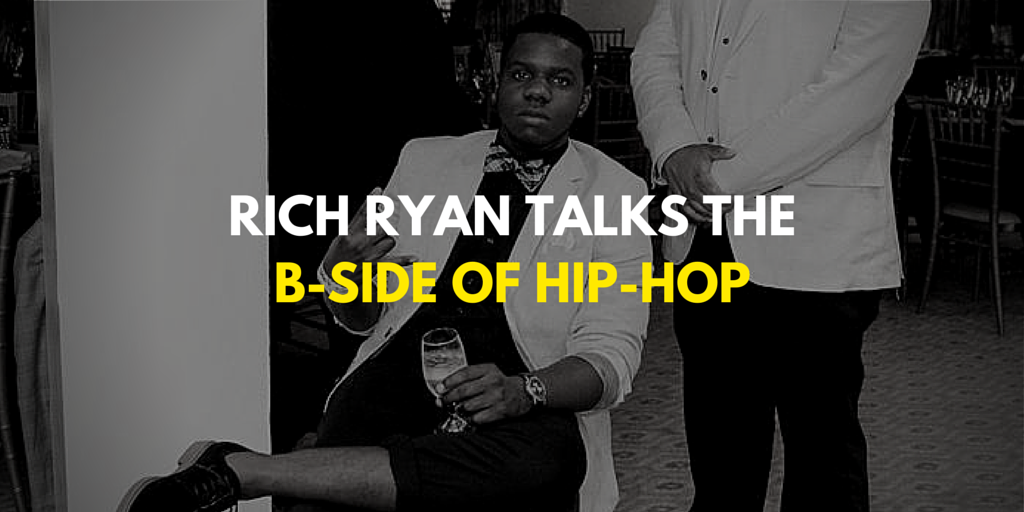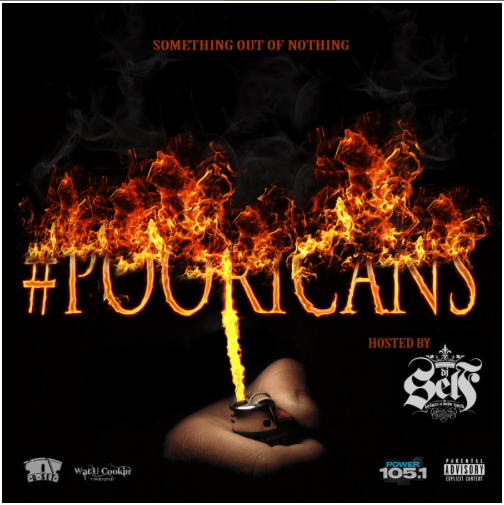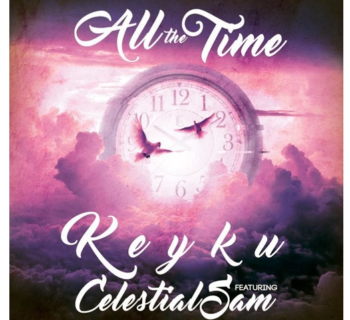Hip-hop artist that we have grown up with: Ja Rule, Lil Kim, and even heavy-hitting legend Nas have either gone to jail, been chased down by the IRS, and hopped from courtroom to courtroom to settle financial disputes. Some of them have racked up more debt than the typical college student loan; Wayne alone owes more than a million dollars in private jet trips. The life of a hip-hop artist can set-up someone so well they’ll never have to work a day in their life again, but as with anything, if you don’t know how to manage, time and time again people will rob you in plain sight and you will burn out as quickly as you rise. So as you are still in the building block stages of your career, making a name for yourself and signing up for serious gigs, we wanted to share some advice from Richard Ryan, business manager, CEO and co-founder of 2G Entertainment. Rich Ryan was born and raised in Brooklyn, NY / New Jersey and was one of the original members of the Deans List Tour. Our very own, I.S. Jones sat down with him and asked him the following questions.
I.S. Jones: State the name, the organization you represent, and the role you play within the organization.
Rich Ryan: Richard Ryan, 2G Entertainment, CEO.
Jones: Describe your brand in three words?
Ryan: Family. Definitely family-oriented. Hard-working. Just like any other brand, we put a lot of long hours. A lot of work. Diversity. [We have] a really diverse rappers on our team, very different between Hookz Murdock and Enonomous. We have another artist, Christopher Demarco, a country artist from South Jersey. He just came aboard the team [of] 2G Entertainment. You’re actually the first person to hear about it, so it’s pretty exciting news.
Jones: How did you become an agent or choose to be one? Is it something that you went to school for or it is just something that you naturally have a talent for?
Ryan: I naturally have a talent for it. I actually started 2G back freshmen year of high school. Initially it was Gang-Green Records. A few years later, we decided to change the name to 2G Entertainment officially. We went through three different cycles of artists. It’s just something I feel I have a natural niche for. I’ve always been attracted to the idea; I watch a lot of Mad Man, Suits, and Entourage. So it’s something I feel I’m pretty good at. It is something I want to go back to school for.
Jones: I notice every time I have seen you, you’ve been in a suit. Do you feel as though, as the old saying goes “clothes make the man”? That it’s necessary to look as successful as you want to be?
Ryan: Right, yeah. I definitely agree with that. Dress for the job that you want, not the job you have. So as a young Black male, I feel it is extremely important to look the part. If I have to come to an establishment for a performance opportunity, jeans and sneakers versus a suit, I’m going to be looked at in a different light than in a suit. “This young man came to me in a suit. This artist came to me in a hoodie and a fit” Not to say there’s anything wrong with them; I wear hoodies and fits all the time. For business dinners, however, I like to keep a suit and tie on. Perception is reality, so people look at you differently.
Jones: As it stands right now, is 2G generating any revenue?
Ryan: At this point, we aren’t because we know what 2G is but we don’t know what 2G is. So you don’t want to put a product out there and have no idea what is it. We’re still in our beginning phase. Artists are trying to figure out who they are under 2G. [I’m] still trying to find out who I am as a manager. We have generated some sort of income, but it’s through different shows—not through merchandising or anything like that. Our first mass of income is probably going to come from our music festival which is coming up in September. Our festival is going to be huge; it’s going to be the first underground music festival in New York City area.
Jones: Continuing on that same thought of revenue, why do you think a lot of artists who eventually become rich eventually find themselves in debt, maybe ten years later? Why you do think they make the wrong choice or do the wrong thing and end up in morbid debt later in life…?
Ryan: It’s just your financial philosophy…that’s what it comes down to. So, I was told that if I give you $500 this week and you have $0 at the end of the week then cool. If I give you $5,000 and you have $0 at the end of the week, nothing is going to change. You can end up with $0 if I give you a million. Your financial philosophy is messed up. There’s no reason why you shouldn’t be able to save $5 or $10 of that $5,000. One should have their financial philosophy in line. So, if I have 4 million dollars in my account, I’m going to act the same as if I have nothing in my account. If I have 5 million dollars in my account, I’m going to ask the same as if I have a million dollars in my account. If I have 10 million dollars in my account, I’m going to act the same as if I have 5 million in my account. So, that’s just what that means: have a good financial philosophy in line.
Jones: Why do you think a lot of artists don’t even have the basics of a financial philosophy? Even though they know the line of work they’re in can make them very comfortable.
Ryan: I think it’s just that they are overwhelmed by the excitement. A lot of these hip-hop artists came up from nothing, so when they finally get that first taste of what it’s like to have something it’s that exciting—the glamour, the fame, the cash-flow. It’s overwhelming, so you never really know what to do with that. A lot of mistakes artists make initially is their investments, right? So they purchase, purchase, purchase without hiring a business manager—someone who will keep tabs on what they’re purchasing.
Jones: What are the three things that annoy you when working with artists?
Ryan: Communication. Definitely. Communication is one of those things. I had an artists, years ago, where we bumped heads a lot because communication wasn’t there. It was tough because at this stage, the early stages, you’re acting as a manager and an agent. A lot of people don’t differentiate between the two—an agent is supposed to book shows for you and a manager is supposed to oversee your career. So if I’m booking a whole bunch of shows for other artists, they got pretty upset obviously. So communication is one and ego. A lot of artists have ego and think they’re above the venues they’re performing at. They think they’re above the artists that they are featuring with, but how are we all going to come up together if you’re not giving back? So those are two main things: communication and ego. It’s difficult, especially if you’re managing more than one artist at a time so you have different egos in one room that you’re dealing with.
Jones: How do you circumvent that when you have an artist who is naturally gifted, and you see potential in them, but their ego is going to be their Achilles’s heel?
Ryan: I just end it, you know? Hard work beats talent when talent doesn’t work hard. I’ll take a hard-working artist who’s decent over somebody who’s extremely talented but has a huge ego and isn’t willing to take advice. If there’s a lack of work ethic, there’s ghost writers and things of that sort. You can mold performers, you can mold skills. You can get better with your lyrics.
Jones: Do you focus more on internet exposure or local exposure for your brand and why?
Ryan: I don’t focus on one more than the other. I think they both come hand-and-hand together, to be honest. Internet exposure is great. You see a lot of artists nowadays are blowing up and are huge without having a record deal, because they are touching a lot of different market places which the internet allows you to do. So somebody in Connecticut could hear my [music] or somebody in New Jersey or New York or Atlanta. Different universities or different friends on Facebook [sic]. Different people can hear what I’m putting out. And for local exposure, I’d rather tackle my local niche first. It doesn’t make any sense going out to Atlanta if you haven’t tackled New York first. So, local exposure is important and so is the internet. They come hand and hand. I wouldn’t pick one over the other.
Jones: Now in the digital age of piracy, streaming, and consumers being able to acquire an artist’s work for free, how can an artist still provide for themselves?
Ryan: Shows. Show opportunities and touring, because obviously, a lot of record labels nowadays, they put in their touring in their contracts because album selling isn’t cutting it anymore. So because people download and pirate music off the internet, people are attacking their fans through the internet. Someone who has 50 million views on YouTube, they’re gonna get booked for a show just like that. If you have 50 million views on YouTube on a consistent basis but you’re albums are only selling 5 to 10 million, I’m still going to listen to your tracks on the internet, because it shows you have a fan-base. Because you’re constantly selling out shows. There’s touring…consistently touring and that’s the most important thing honestly…just get out there and tour and know your fan-base. Courtesy has never put an album out in his career.
Jones: What technique(s) have you found to be the most successful when hosting an event?
Ryan: Preparation. Preparation is important. The Dreamcatcher showcase we did was actually our second one under the name ‘Dreamcatcher’. We had our first one almost a year ago at the same place and only 20 people came out to support. We had no bloggers there. It wasn’t the best show to be honest, but we only had a week and a half to prepare for it. Versus this show, we had a month and a half to prepare for it; we contacted the right media personnel, the right bloggers, promoted it online heavily. We made sure every single artist put the time in that they needed to, so that. Preparation as well as time. Time is really important. We’re paying for a space, right,so you wanna make sure you’re mindful of time, because you might have an artist who has time booked after you. So if they’re on from 6-11, and that artist has time booked from 11-5, you don’t want to hold up their time because they paid for their time as well. So you wanna be courteous of the time as well. It’s crucial to start on time. I tell my artists, “If you’re not on time for sound check, you’re not performing that night”. I’m very strict on that. If they’re not on time, they’re not performing. It’s that simple.
Jones: So I’m from California and we seem to do events differently because New York events tend to start an hour to two after the flyer says, yet 2G is very punctual.
Ryan: Exactly! You know, a lot of places in New York City, the venues don’t allow hip-hop shows on their major nights. Fridays and Saturday nights they don’t allow hip-hop shows because they are scared of the kind of crowd it’s going to attract. So they give us Sundays. Sundays are peoples’ time to prepare for the next workday. They just want to relax and get settled in themselves. Sundays, you especially have to be courteous of their time because they're trying to get ready for the next work week.
Jones: How do you expand a networking family and let in the right people?
Ryan: What I have done in the past is I give a 3 month trial period. I’m not going to ask them to sign anything. I don’t want you to give your all out of nowhere. I tell them “This is what you’re going to do, alright? I’m going to get you ‘x’ amount of shows, ‘x’ amount of video interviews, I’m going to put you in the studio, I expect you to work on your project, and I expect 100% in return”. At the same, you’re giving me a chance to show you what I can do for you as a manager & as a label head, and at the same time I get to see the amount of work you’re willing to put in. So I’m not giving you all of my resources, I’m not putting it all on the table for you, but I will get certain things done for you. At that point, you can see what kind of work ethic that person is willing to put in and how serious they are. You end up building a relationship with this artist over these months, so you’re not just signing someone randomly. You’re working together hand-in-hand, so at the end of that three months, you’ve both built a solid relationship with each other. You’ve gotten to see that person’s work ethic and you’ve gotten to see what that person will bring to the table. That’s how I’ve done it in the past.
Connect with Rich Ryan
Facebook.com/2gRecords | Instagram.com/richryan_2g






![[Video] "Sinister" - Dot Demo](http://upcominghiphop.net/wp-content/uploads/2016/01/Screen-Shot-2016-01-29-at-6.42.00-PM.png)



![[Premiere] Cliz & The Clockmen - EP](http://upcominghiphop.net/wp-content/uploads/2016/12/Screen-Shot-2016-12-23-at-3.43.05-PM-130x130.png)



